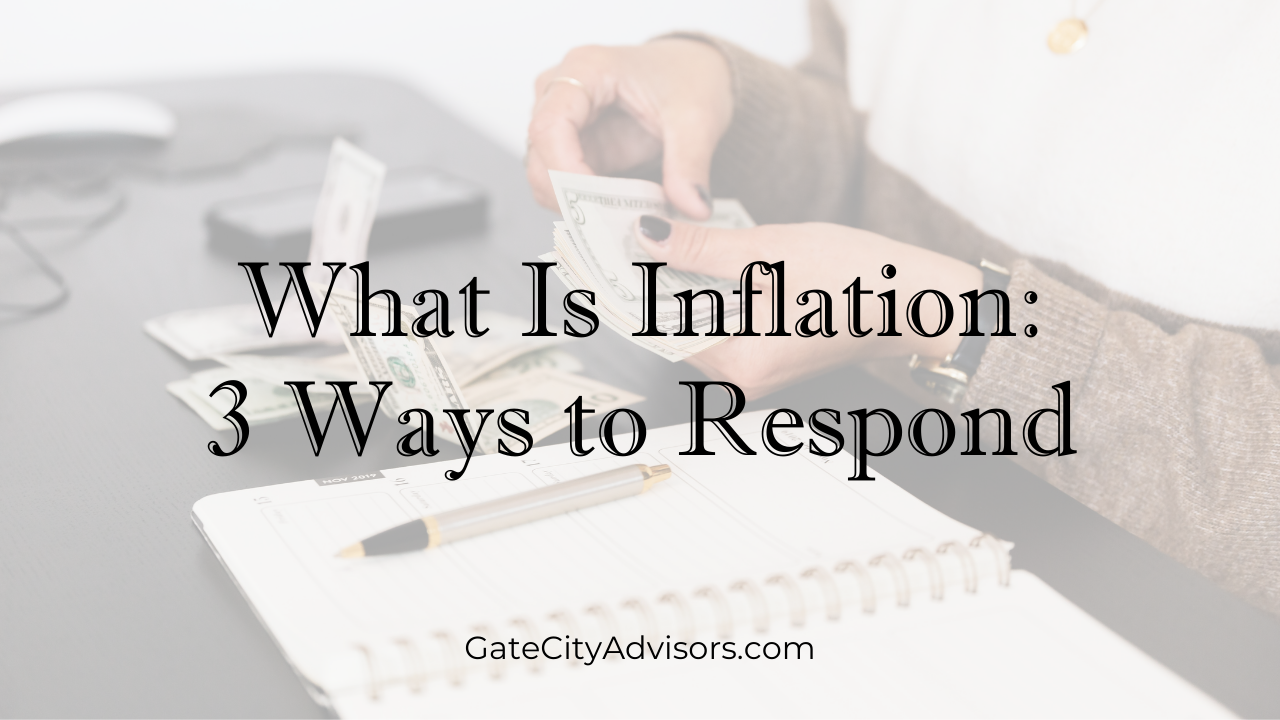What Is Inflation: 3 Ways to Respond


Unless you‘ve been living under a rock, you are very aware that prices for many products and services have gone up this year. Some have gone up dramatically! In fact, inflation as measured by CPI is at its highest level in around 30 years. The Fed wants us to believe that inflation pressures are “transitory”, the President wants us to believe his “Build Back Better” spending plan will make inflation go back down, and the rest of us are left scratching our heads on how we got into this mess. Some speculate that we are headed back to the stagflation days of the 1970’s, others speculate a recession is coming, and others that inflation will moderate once again. The honest answer is no one knows for sure.
I would argue that there are seeds of both transitory and potentially long lasting inflation forces at work. It seems clear that the pandemic “shocked” the economic system and created substantial challenges to the global supply chain. These included dislocations in our work force as millions lost their jobs almost overnight, substantial stress in moving people and products around the world, and shortages created by delays, just to name a few.
As governments around the world infused money into the financial system through fiscal spending, the Fed along with other major central banks provided liquidity to the system as well. This created funds that helped increase demand for many products to help offset the decline in service spending created by the pandemic. Inflation created by an economy growing with wages rising due in part to productivity increases is “good” inflation. On the other hand, inflation created as a result of excess spending in unproductive areas sows the seeds of “bad” inflation.
Many think that inflation is monolithic, affecting people equally. The reality is that inflation varies based on where you live, how you spend your dollars and even your age. A person with high medical spending faces a different inflation rate than someone looking at higher education expenses. The cost of living is different in the Midwest than the East Coast. However, all of us are affected at some level by the inflationary forces created during the pandemic. So what can we do to offset this challenge?
I want to put forth three strategies to deal with inflation: Avoid, Adjust and Adapt.
Avoid
If in fact some of the forces are transitory then one strategy may include avoiding expenses until prices moderate. For example, the high price of lumber along with supply shortages and the delays created earlier this year caused my wife and I to put off a remodel project.
Adjust
Adjusting our time horizon could also be a solution. Delaying the purchase of a vehicle until the chip shortage subsides should add a higher supply of vehicles to help moderate the recent price increases.
Adapt
Adapting can take on a couple methods. If the price increase for fuel is the challenge then taking fewer or closer to home trips could be the solution. For food it could be buying hamburger over steak.
Regardless of your response to inflation, creating a budget is never more important than when inflation is rising. It allows us to focus our thinking on what we need versus what we want. And it can help us clarify our goals. We are all in this together. If you have questions about your situation, we want to help. Click the link below to schedule a quick chat to discuss your personal situation.
Want help building YOUR Retirement Income Toolkit?
